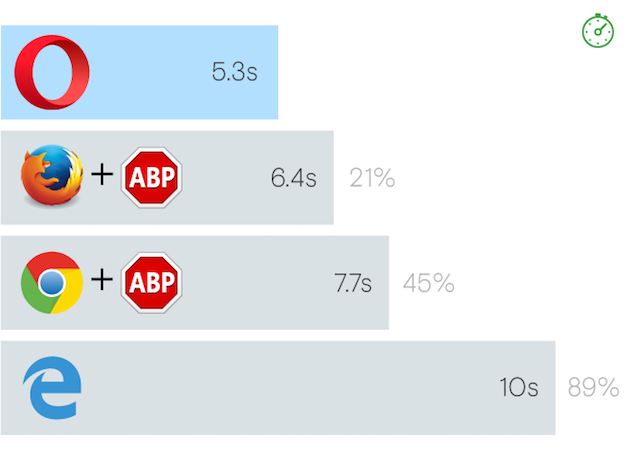While Opera is trying to revive the team has decided to propose a new native functionality to its users: an ad blocker. A decision that could harden the position of publishers, blocking more and more access to their site.
While the ad blockers were a topic widely discussed this week in France, both by IAB as UDECAM (see below), a new player in the world of browsers has announced its intention to introduce such tool natively. Opera
When blockers become browsers
it is indeed far from being the first to follow this trend, which is explained in three ways. The first is that by integrating directly browsers, developers of ad blockers are opening more doors at the technical level. The extensions have indeed great opportunities, but more limited.
The second is that it allows some players really retain their audience, while competition is becoming strong enough in this market. The brand is thus no longer that of a secondary tool but of an application that it is necessary to use every day.
The third is the attraction of the public and the gleanings of shares market. We remember how Firefox has benefited in its early stages of its anti-popup solutions or the ability to install AdBlock as an extension. When you are a small player facing Google, Microsoft or Mozilla, this can make the difference.
This strategy was notably used on the mobile by ASUS or Samsung (even if it discards practice on third party applications). Apple also benefits from its stranglehold on iOS to force the use of Safari to those who would block advertising. One way to counter the rise of Chrome in particular
Opera. A test via the channel “Developer”
Opera, which has never really managed to break into the market despite real assets on its earlier versions, has multiplied the changes of recent years. The company thus setting an advertising blocking feature to attract users again. A solution it is currently the only one to propose, that of Firefox instead being reserved for private browsing.
Of course, the team wants to limit such privacy issues and speed up browsing. But she did not hide its goal by recalling that “ users want blocking technology advertising .”
This tool is for the only time proposed in version distributed in the “Developer” channel. It is disabled by default, but if advertisements may be blocked on a page, the user will be prompted to do so. As often, the statistics will be displayed, and a whitelist can be used to save certain sites. Some are even included natively as CNet and TechCrunch (the others will appreciate).

A speed test, but not really innovation
A loading speed test, comparing the result with and without blocking is also introduced. It does that by cons on a page load in each case, the results can therefore change significantly from one test to another. Nevertheless, we can already expect some sites are hearing about this issue becoming a problem for their readers.
We regret the way that Opera does not benefit rather to highlight a feature to block only certain sites by default, avoiding all penalize for some practices. We could also imagine offering a feature to disable the blocker to a site where the user frequently visits. But innovation in relation to the competition seemed not the first concern here.
In the discourse of society, the question of the editors of funding also seems relatively absent. It evokes its willingness to seek to change their minds, but what about those who already have a practice of responsible advertising, or those that could put it? They will be blocked in the same manner. Consequently, it is not surprising to see a growing number of players to build a systematic blockade, which began to be recommended by organizations such as the IAB (or GESTURE who is preparing a campaign to this effect) .
the team prefers therefore clear that its tool is faster that Adblock more, but forgetting the other blockers of the genre. The question is whether that will be enough to make a difference, and to encourage users to use Opera en masse, rather than one of its many competitors

No comments:
Post a Comment